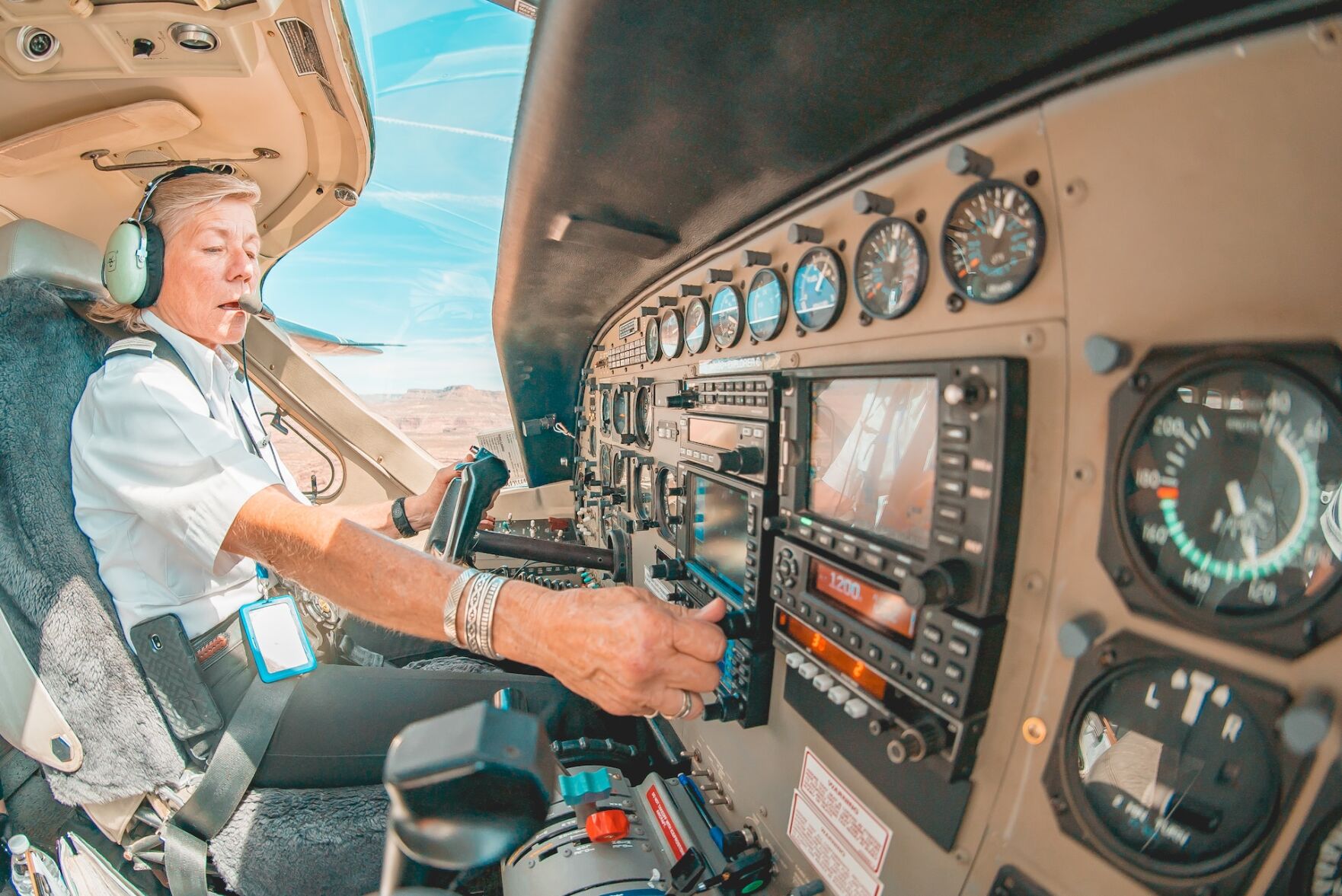
Embarking on a journey to become a pilot is an exhilarating endeavor that demands training, commitment, and the cultivation of skills. Private pilot courses offer aspiring aviators the opportunity to acquire the knowledge and experience necessary for their step into the aviation world. In this article, we will delve into the skills nurtured in private pilot courses, laying a strong foundation for success in the aviation industry.
Grasping the Fundamentals:
A private pilot course aims to instill an understanding of flight fundamentals. Students acquire knowledge about aircraft operations, aerodynamics, airspace systems, navigation techniques, weather interpretation, and more. By comprehending these concepts, pilots are equipped to make decisions and navigate their flights with safety at the forefront.
Fostering Decision-Making Abilities:
One crucial skill honed throughout pilot courses is decision-making. Pilots must possess the ability to swiftly and effectively evaluate situations to ensure flight safety. Through simulated scenarios and real-world experiences, aspiring aviators practice informed decision-making techniques that enable them to make choices under pressure. This competence proves invaluable when pilots encounter unexpected weather conditions or confront difficulties during flights.
Mastering Communication:
Communication plays a role in ensuring aviation safety. Private pilot training places an emphasis on communication among pilots, air traffic control (ATC), fellow crew members, and ground personnel. Through the acquisition of phraseology and protocols used in forms of communication, such as radio communications and updates via automated technologies, pilots become skilled in accurately transmitting and receiving information while maintaining situational awareness.
Enhancing Problem-Solving Skills:
Furthermore, private pilot training also focuses on enhancing problem-solving skills. The ability to swiftly identify and address issues allows professional pilots to make adjustments for safe flight operations. Instructors guide students through problem-solving techniques to handle real scenarios encountered during real flying situations.
Building Situational Awareness:
Developing a level of situational awareness is integral to the journey of becoming a private pilot. Pilots are trained to gather information from various sources, interpret it accurately, and incorporate it into their decision-making process. Private pilot courses teach aviators how to monitor aircraft systems, scan the surrounding environment for other aircraft and potential hazards, and make well-informed judgments based on incoming data. This comprehensive understanding enhances flight safety by enabling pilots to anticipate and respond proactively to challenges.
Leadership Skills and Crew Resource Management:
Additionally, private pilot courses also aim to cultivate leadership skills within aspiring aviators alongside honing their capabilities. Skills like communication, teamwork, situational awareness, and decision-making play a role in effectively managing crew resources. These skills ensure coordination among pilots in crew aircraft or during emergency situations that require collaborative problem-solving.
Learning Risk Management:
An important aspect of pilot training revolves around acquiring the ability to identify risks associated with flying. This skill involves assessing factors such as weather conditions, aircraft limitations, personal capabilities, and fatigue management while planning flights. By developing techniques for risk assessment during their training, pilots gain strategies to mitigate or avoid hazards efficiently.
Practicing Flight Maneuvers and Techniques:
Private pilot courses include training in a variety of flight maneuvers and techniques. Students learn how to handle takeoffs and landings, navigate through a variety of flight patterns, perform stalls and spins safely, execute emergency procedures proficiently, and conduct cross-country flights. By practicing these maneuvers under the guidance of instructors, pilots develop the skills necessary to maneuver their aircraft in different situations confidently.
Analyzing Weather Conditions and Making Decisions:
A vital aspect of pilot training is understanding weather patterns and effectively interpreting meteorological information. Pilots have the responsibility of evaluating weather conditions, analyzing forecasts, identifying potential hazards or challenges, and making informed decisions about flight routes or whether to fly at all. Private pilot courses provide knowledge on how to interpret weather charts, utilize weather forecasting tools, consider the effects of topography on weather conditions, and develop decision-making skills based on weather analysis. By integrating weather analysis into their training and decision-making processes, aspiring aviators gain an awareness of how climate impacts aviation safety. Developing expertise in this area enables pilots to make informed choices when planning and executing flights that prioritize safety above all else.
Conclusion
Private pilot courses equip students with the set of skills necessary for successfully navigating the aviation world. From understanding flight fundamentals to honing decision-making abilities, effective communication protocols, problem-solving techniques, situational awareness acquisition, crew resource management competency, leadership qualities, and risk management practices, private pilot training propels aspiring aviators toward a fulfilling career. Furthermore, students acquire proficiency in performing a variety of flight maneuvers while mastering the techniques required for takeoffs and landings. Analyzing the weather is also an important aspect of a pilot’s decision-making process when it comes to planning routes or determining whether it is safe to fly.
Equipping pilots with a range of skills allows them to ensure the safety and comfort of themselves and their passengers throughout their aviation journeys while also delivering a comfortable flying experience. Start your private pilot course today and take the stride toward becoming a skilled and confident aviator.




(0) comments
We welcome your comments
Log In
Post a comment as Guest
Keep it Clean. Please avoid obscene, vulgar, lewd, racist or sexually-oriented language.
PLEASE TURN OFF YOUR CAPS LOCK.
Don't Threaten. Threats of harming another person will not be tolerated.
Be Truthful. Don't knowingly lie about anyone or anything.
Be Nice. No racism, sexism or any sort of -ism that is degrading to another person.
Be Proactive. Use the 'Report' link on each comment to let us know of abusive posts.
Share with Us. We'd love to hear eyewitness accounts, the history behind an article.